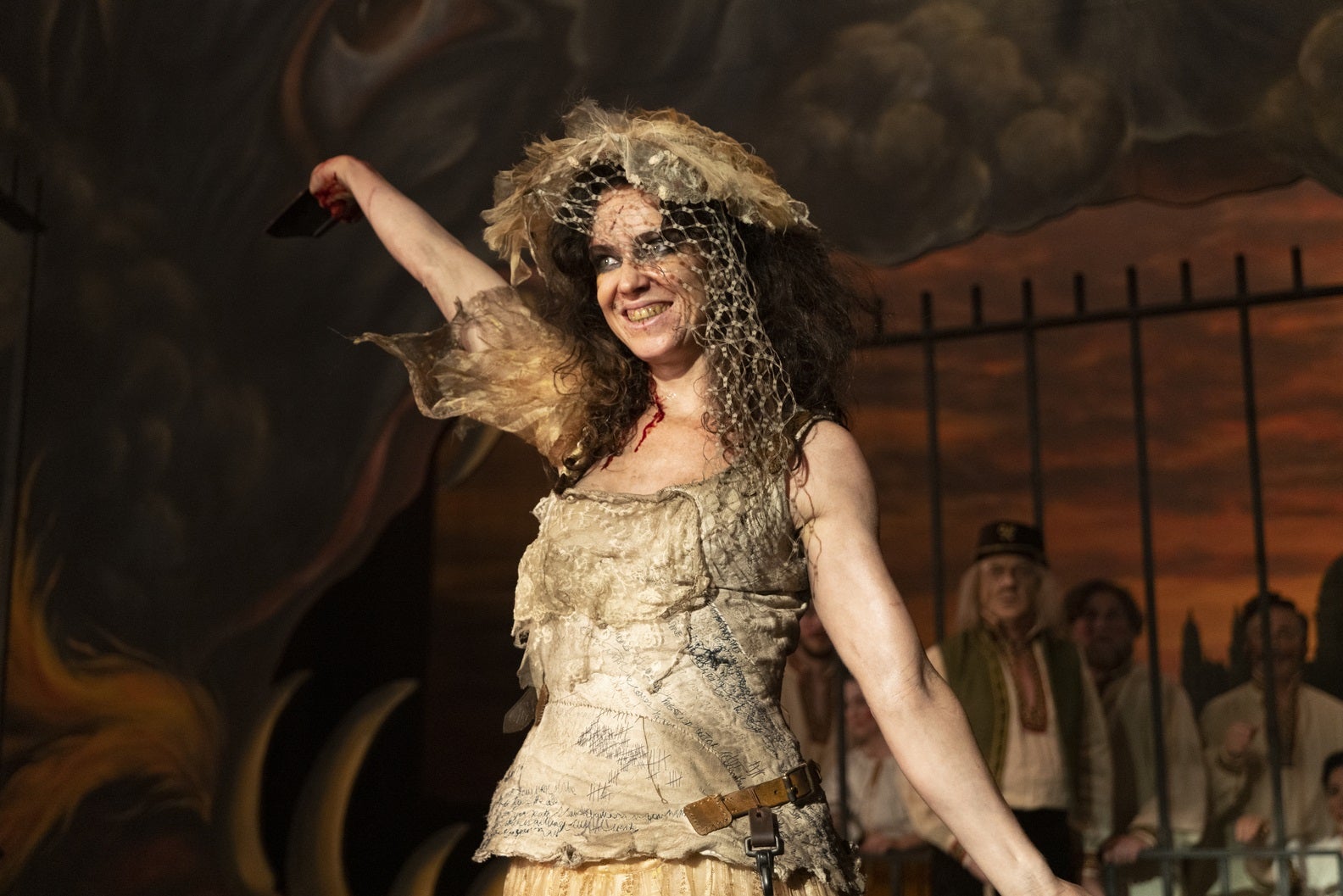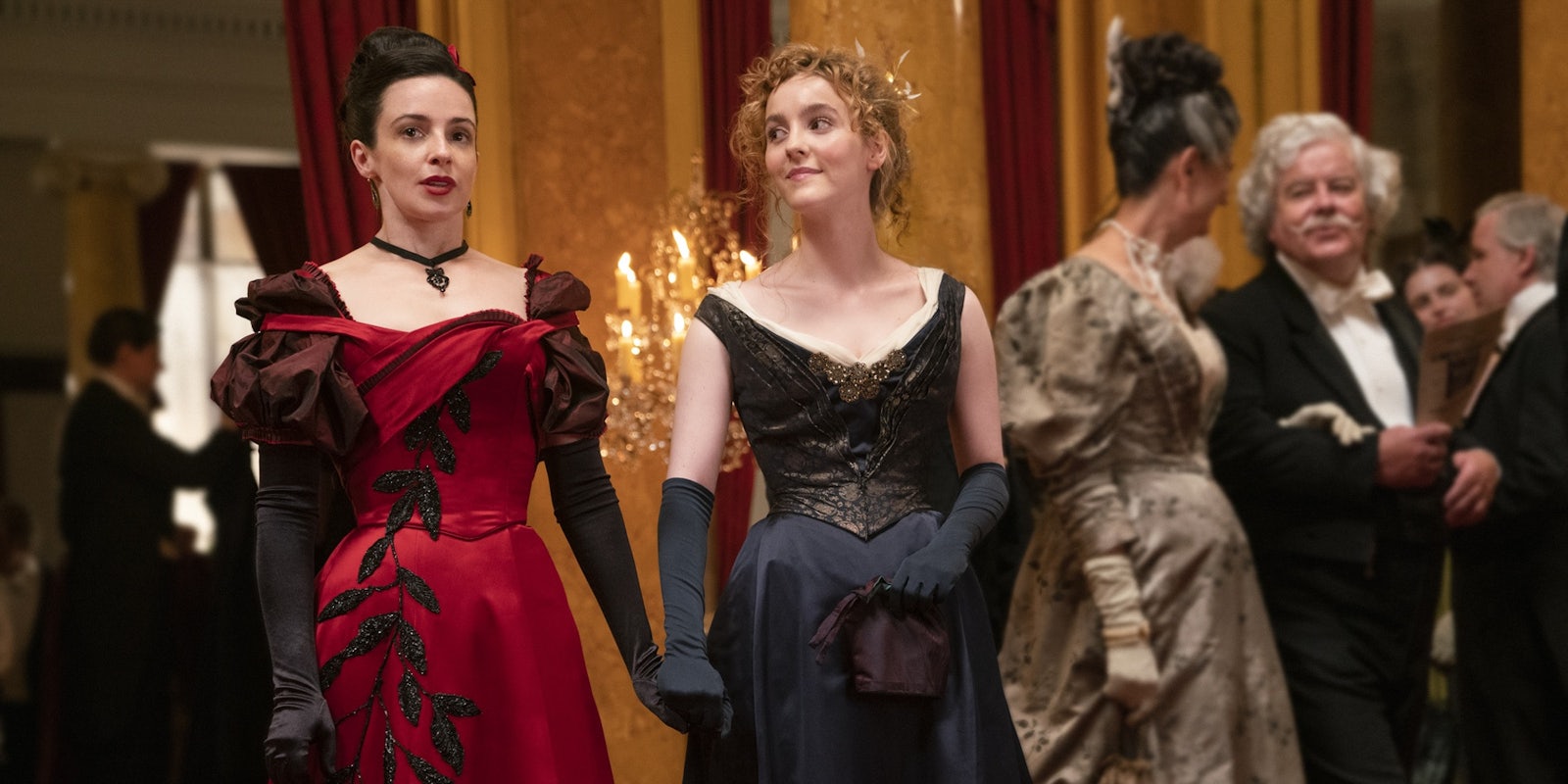When HBO announced Joss Whedon‘s new TV show The Nevers in 2018, Whedon had recently completed Justice League for HBO’s parent company Warner Bros., and he was accused of emotional abuse and unprofessional behavior by his ex-wife Kai Cole. More wide-ranging abuse allegations would be shared by others in 2020 and 2021, but even in 2018, fans were aware of grim stories like Charisma Carpenter’s treatment while filming Angel—not to mention the sexist and racist themes in Whedon’s work. This was the climate in which HBO won a bidding war for The Nevers, presumably hoping it would be a triumphant return to form for Whedon. It isn’t.
Creator: Joss Whedon
Streaming: HBO
Summary: This female-led Victorian fantasy series wears its modern influences on its sleeve. Sadly, the fun moments are let down by clumsy political storytelling and thin characterization, not measuring up to Whedon’s earlier work on ‘Buffy’ and ‘Firefly.’
Set in Victorian London, this sci-fi/fantasy drama is Whedon’s most overtly political work, a clumsy oppression narrative where superpowered people are social pariahs. Most of “the Touched” are women, and our main heroes are a squad of outcasts led by the tough-but-damaged Amalia True (Laura Donnelly). Many of Whedon’s familiar flaws are present here, but his strengths are largely absent. With laborious scripts that lean more toward exposition than wit, the overall tone feels rather dated, from the girl-power feminism to the expensive steampunk aesthetic. In the four episodes made available to critics, there are two separate fight scenes where Amalia escapes death by stripping down to her corset and underskirt.
The show also introduces far too many characters at once, some of whom are stock Whedon tropes: a cartoonishly perky scientist (Penance Adair, played by Ann Skelly), a victimized teenager who “speaks in tongues” and therefore can’t communicate (Myrtle, played by Viola Prettejohn), and an unforgivably corny Victorian madwoman (Maladie, played by Amy Manson). Maladie is a sort of cut-price Helena Bonham Carter caricature; a disheveled cockney serial killer who rambles incoherently while dancing around to show how mad she is. Buffy fans will recall the waiflike vampire Drusilla, a far more sympathetic and entertaining example of this trope. Our protagonist Amalia is a likeably wry figure amid this array of overly broad performances. And in an ongoing trend for Whedon projects, characters of color only appear in limited secondary roles.
Elsewhere in the cast, we have British TV star James Norton playing an evil pansexual aristocrat. This tiresome stereotype begins with a threesome and continues with him hosting a classic example of a TV Show Sex Party. Basically, an excuse to have a gaggle of naked women loitering in the foreground while the main characters talk about how morally bankrupt they are. He’s not the only LGBTQ character, but The Nevers‘ oppression narrative still feels less queer than its most obvious point of comparison, Marvel’s X-Men. Perhaps predictably, there’s not much examination of identity or community here.
As HBO emphasized in its Whedon-free publicity campaign, The Nevers isn’t a one-man show. It’s a collaborative effort with an extensive cast, elaborate production design (Gemma Jackson), and a diverse writing team including the fan-favorite Jane Espenson (Buffy, Game of Thrones, Jessica Jones). However, this is still unmistakably a Whedon joint. He may have departed the show before its release, but they’d already wrapped filming and he directed several episodes himself. And it’s morbidly interesting to see how his recurring tricks and themes have deteriorated since the highs of his early career.
Whedon built a career on his feminist brand, but the empowering themes of Buffy—and the beloved characters therein—were never as explicitly political as The Nevers. Characters continually explain the show’s themes out loud, including clunky illustrations of Victorian bigotry. Sexism is mostly explored through women being tormented and then fighting back, with more attention paid to trauma than well-developed characterization. Maladie, for instance, keeps delivering sadomasochistic monologues while blood and eyeliner drip down her face, reminiscing about abusive psychotherapists and delivering lines like, “Would you like to beat me some more?”

There’s a huge audience for female-led adventure stories, and The Nevers teases a compelling found-family narrative for the Touched. I certainly enjoyed parts of the first four episodes, including a couple of well-conceived fight scenes and the central friendship between Amalia True and Penance Adair. Some of the banter lands pretty well. The problem is, these good points are highlights in an overstuffed story with shallow characterization. It compares very poorly to the excellent Victorian fantasy series Penny Dreadful, and to Netflix’s Umbrella Academy, a more entertaining adult drama about dysfunctional superheroes. The Nevers just feels flimsy, from its overcrowded cast to its subpar worldbuilding. Its depiction of Victorian society is about as complex as a one-off episode of Doctor Who—a show that’s designed to be understood by 7-year-olds.
A couple of weeks ago, I wrote a video essay about Hollywood’s love of using Victorian England as a fictional playground. Films like Robert Downey Jr.’s Sherlock Holmes are intentionally silly, so we don’t expect any sense of historical authenticity. But The Nevers tries to mix quirky fantasy with real social commentary, and fails massively at the latter. This vision of Victorian England was filtered secondhand through a collection unexamined assumptions, without any serious thought to the original source. Whedon wants to tell a story about women and minorities rebelling against evil Victorian patriarchs… but the general tone echoes his present-day American dramedies.
A couple of episodes in, I realized that none of the heroes exhibit any real signs of emotional repression or class bias. Only the malevolent aristocrats exhibit these traits, while everyone else is happy to discuss their feelings and state their psychological motives out loud. Unlike Black Sails or Harlots —a pair of brilliant historical dramas about outcasts battling English society —there’s no sense of how these characters were shaped by their surroundings. Whedon exploits historical bigotry for an action-packed empowerment narrative, with little interest in more subtle social pressures. “White man are bad” is not, in fact, an interesting way to look at this kind of story.
Four episodes into a 12-episode season, The Nevers still has time to find its feet. According to the cast, the more puzzling elements will start to make sense in episode six, at which point HBO will take a mid-season break. It’s easy to see how the show might improve with time, as we learn more about the characters and their world. But for now, The Nevers doesn’t have much to recommend it. With every streaming service boasting its own expensive sci-fi/fantasy shows, it lacks the vibrancy of Netflix’s big hits and the easy watchability of the many Marvel/DC adaptations currently on offer. Even if you don’t know or care about Whedon’s behind-the-scenes scandals, The Nevers just isn’t the A-list drama that HBO paid for in 2018.


